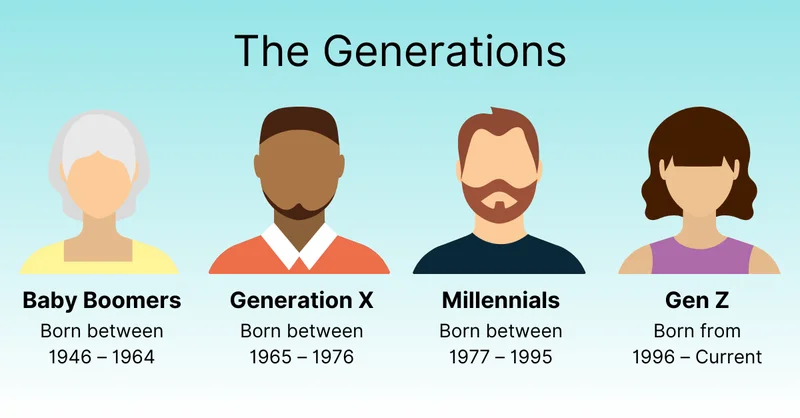I’ve seen the headlines, and you have too. Pieces like Suicide claims more Gen Z lives than previous generation • Stateline paint a picture of a generation on the brink: anxious, overwhelmed, and tragically, losing a battle for hope. The data on suicide rates for Generation Z—those born roughly between 1997 and 2012—is frankly heartbreaking and demands our immediate attention. We hear about a "Gen Z split," a supposed fracture between hyper-motivated entrepreneurs and those who are emotionally disengaged from the very idea of a career. It’s a neat, tidy, and deeply alarming narrative.
But after digging into what’s happening on the ground, I’m convinced this narrative is missing the forest for the trees. What if the immense pressure this generation feels isn't just a crisis, but a catalyst? What if their anxiety isn't a weakness, but a finely tuned sensor detecting the deep-seated flaws in the world we built?
I believe we’re witnessing something far more profound than a generation breaking down. We’re watching a generation boot up. This isn't a fracture. It’s a Great Recalibration, a system-wide upgrade in progress, and the noise and friction we're seeing are the necessary sounds of the old world being overwritten.
For the first time in human history, an entire generation has grown up as a globally networked organism. Think about that. Previous generations experienced the world through the filters of local news, national identity, and community gossip. Gen Z, the first true digital natives, experiences it through a raw, unfiltered, real-time feed. They are a living, breathing network.
This is both their greatest burden and their most incredible superpower. The darkness—the rising suicide rates, particularly among young Black and Hispanic men—is a direct consequence of this connection. They feel the weight of systemic inequality, economic precarity, and the performative cruelty of social media not as abstract concepts, but as a constant, ambient hum of personal stress. It’s like having your brain directly wired into the planet’s pain receptors. Of course it’s overwhelming. How could it not be?
But that same connection is fueling a revolution. When I first read about the protests in Madagascar, organized on Facebook, and the rallies in Morocco, coordinated on Discord by a group called 'Gen Z 212,' I honestly had to just sit back for a moment. They're using symbols from a Japanese anime series, One Piece, to fight a repressive government—the same symbol used by activists who toppled a government in Nepal. This is a fundamentally new kind of planetary consciousness, a shared language of dissent emerging organically from the network itself.

The same technology that exposes them to despair is the very tool they’re using to dismantle the systems that create it. From Kenya to Togo, young people are not just complaining online; they are translating digital solidarity into physical action on the streets, demanding accountability for everything from corruption to the lack of running water. They see a problem in one country and, instead of feeling helpless, they see a blueprint. This isn't just protesting; it's distributed problem-solving on a global scale.
This brings me to what I find most fascinating. This generation's so-called skepticism isn't apathy. It's a rigorous form of quality assurance. I was struck by the observations of Jeff LeBlanc, a business lecturer who, in his article I’ve Taught Gen Z for Almost a Decade. I’m Split on the So-Called Gen Z ‘Split’, described an exercise where students bid on leadership traits. For years, the winners have been consistent: kindness, communication, expertise.
But recently, the conversation has changed. Students now ask, "What does kindness in leadership actually look like when the system itself is unkind?" They question if decisiveness is a virtue when leaders seem to constantly get it wrong. They aren't rejecting our values; they're stress-testing them. They’re performing a kind of root-level analysis of our societal operating system—in simpler terms, they're looking at the source code of our culture and asking if it's riddled with bugs. And their verdict is a resounding yes.
This isn't just about politics or economics it's about a generation looking at the very architecture of our institutions, our career ladders, our definitions of success, and deciding the whole thing needs a rewrite from the ground up because the foundation is unstable. Their "anxiety" is a perfectly rational response to the discovery that the instruction manual we gave them is for a machine that's obsolete and dangerously malfunctioning.
This is a moment of profound responsibility for the rest of us. We can’t just stand by and admire their resilience while they fight battles on fronts we helped create. The data shows that crucial mental health programs, like the federal Black Youth Suicide Prevention Initiative, are facing devastating cuts. We have to see the connection between the crisis and the cause. Providing resources, especially for the most vulnerable, isn't just a compassionate act; it's an investment in the architects of our future. We can’t ask them to redesign the world while simultaneously taking away their tools.
So, no, I don't buy the "split generation" narrative. The tension we see is not a sign of a generation at war with itself. It is the engine of its power. The pain and the protest, the anxiety and the activism—they are two sides of the same coin. The pressure is creating the force necessary for a paradigm shift.
Generations are defined by the problems they are forced to solve. For Gen Z, that problem is a world of broken systems they inherited but refuse to accept. They are not lost. They are cartographers, drawing a new map because the old one led us straight off a cliff. The pain is real, but the potential is breathtaking. This isn't a generation in crisis; it's a generation in the middle of a daring and desperately needed system upgrade. And we all have a front-row seat.